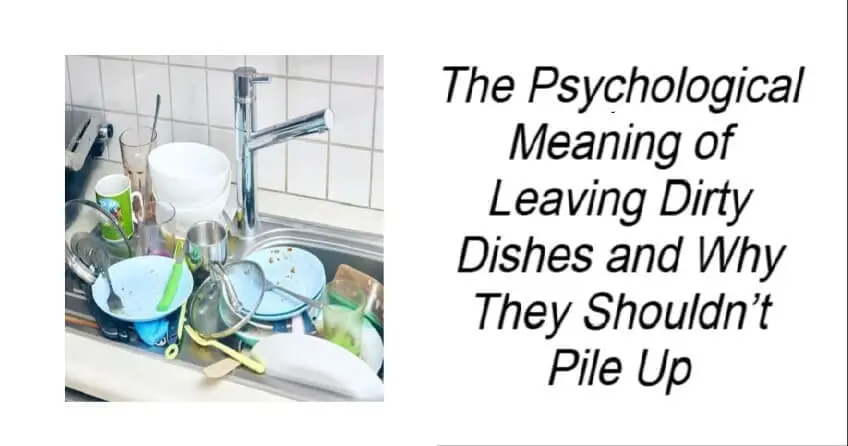The Psychological Meaning of Leaving Dirty Dishes and Why They Shouldn’t Pile Up
The state of our home often mirrors the state of our mind. One of the most telling indicators? The dishes in your sink.
Washing dishes may seem like a simple daily task, but it can actually reflect deeper patterns in our psychology, emotional health, and everyday habits. So why do some people consistently leave dishes unwashed—and what can it reveal about their mental state?
The Psychology of Dirty Dishes
1. Stress and Exhaustion
Many people avoid doing the dishes simply because they’re too drained—physically, mentally, or emotionally. After a long day of work, caregiving, or decision-making, even the smallest chores can feel overwhelming.
2. Procrastination and Disorganization
Pushing off dish duty may reflect a broader tendency to procrastinate. When small, mundane tasks feel irritating or low-priority, they often get deferred—sometimes indefinitely.
3. Emotional State and Mental Health
Accumulating dirty dishes can also be a subtle indicator of mental health struggles such as depression or anxiety. When someone is feeling emotionally burdened, even basic hygiene or household tasks may feel too difficult to manage.
4. Lack of Routine and Structure
A disorganized or inconsistent lifestyle may manifest in an untidy kitchen. When structured routines are missing, daily upkeep—like cleaning up after meals—often falls through the cracks.
Why Letting Dishes Pile Up Can Be a Problem
Even if it seems harmless, consistently ignoring dirty dishes can lead to more than just an untidy kitchen. Here’s why this habit might be worth reevaluating:
1. Health Concerns
Food remnants attract pests like flies, ants, and cockroaches, and create breeding grounds for bacteria. Left long enough, a sink full of dirty dishes can contribute to odors and potential illness.
2. Mental and Visual Stress
Clutter bombards the senses. A pile of dishes can make a space feel chaotic, sparking feelings of guilt, overwhelm, or stress—even if you’re not fully conscious of it.
3. Building Discipline and Self-Respect
Cleaning up after yourself—promptly—is an act of self-care. It reinforces responsibility and control, two pillars of emotional stability.
4. Supporting Healthy Relationships
In shared living spaces, dishes are often a source of tension. Taking initiative can reduce conflict and contribute to smoother, more respectful cohabitation.
More Than a Chore—A Reflection of You
Washing dishes might seem like just another task, but it can symbolize so much more: discipline, mental clarity, emotional health, and even how much respect you show yourself and your space.
While letting the occasional plate sit overnight isn’t a red flag, a pattern of build up could be a sign that something deeper needs your attention.
You’ve just read, The Psychological Meaning of Leaving Dirty Dishes. Why not read Manager Had To Hire A New Employee.

